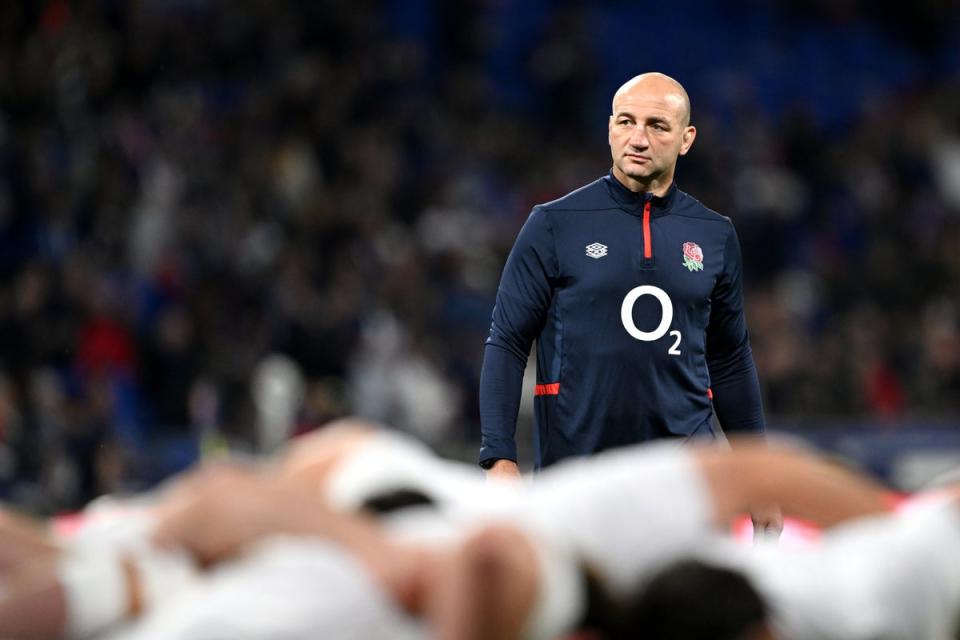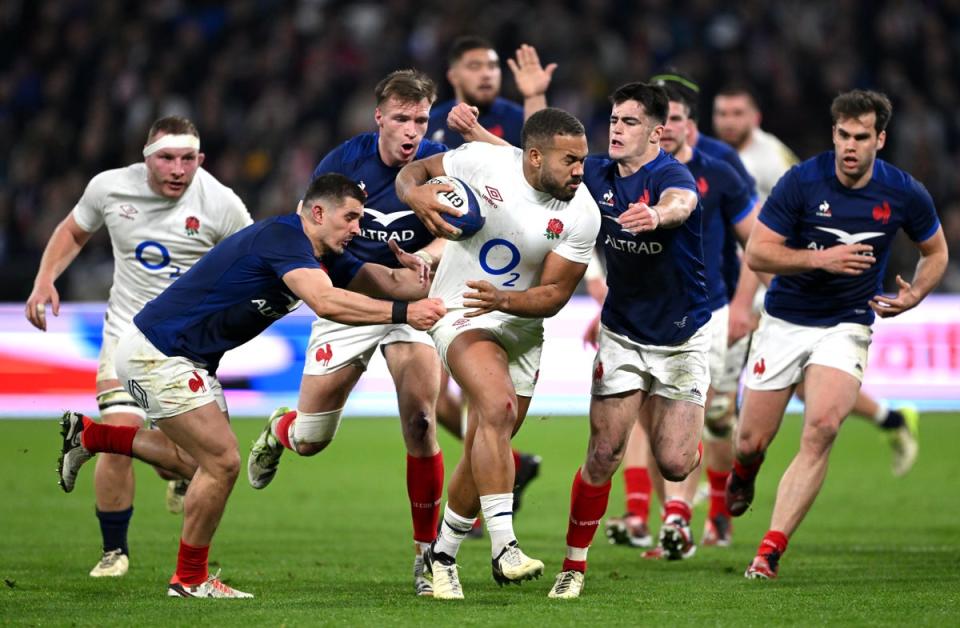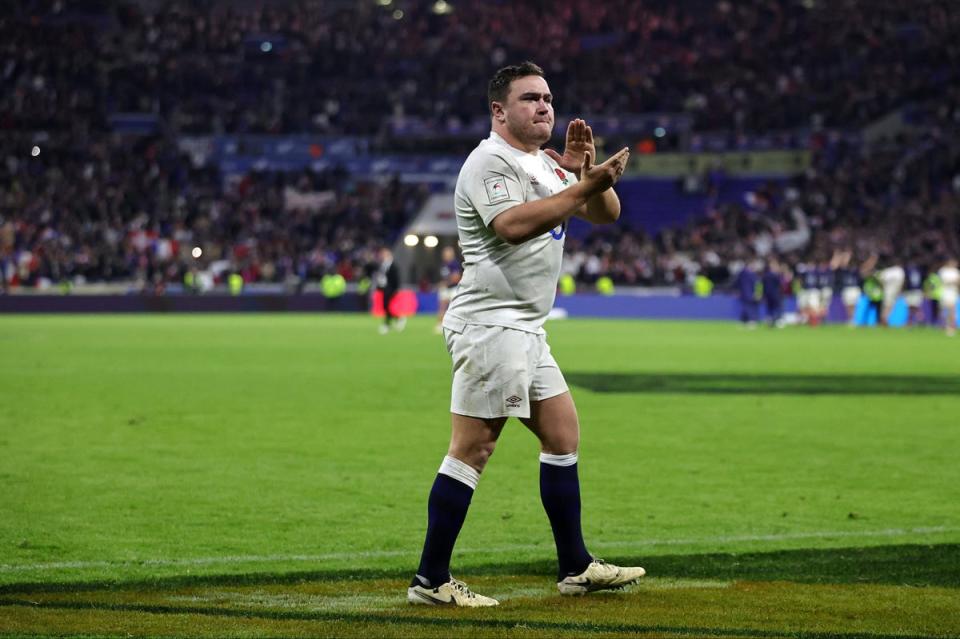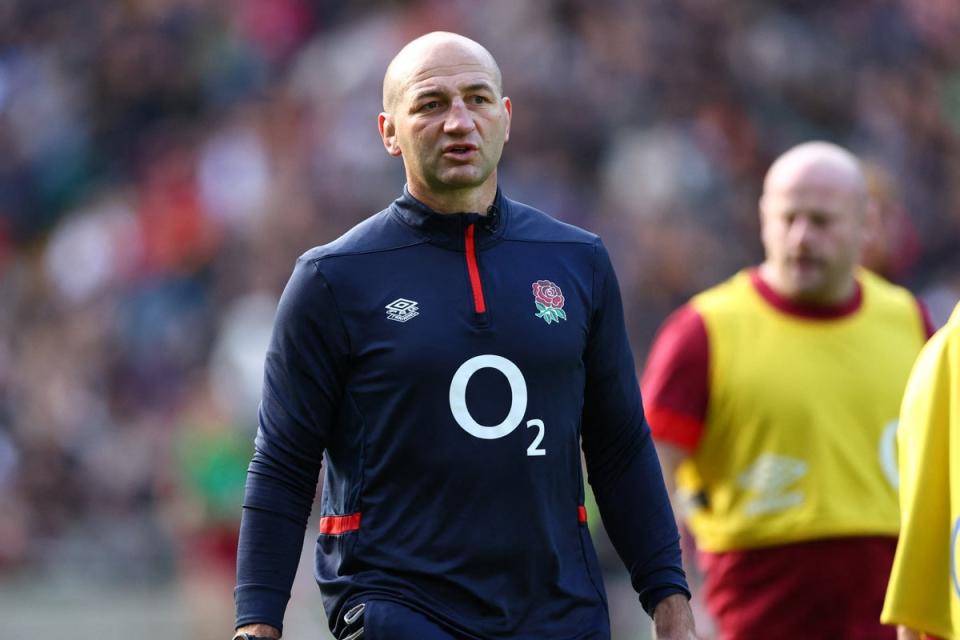England on track under Steve Borthwick after showing vital quality despite France defeat

It says everything about Steve Borthwick that on this Monday morning, when most international coaches would rightly be drawing breath after two months in the thick of Six Nations battle, the England boss will instead board a flight to New Zealand to begin preparations for his side’s summer tour. Time at home can wait for Borthwick as he begins to put in place a performance programme that he hopes can take it to the All Blacks in July.
The work never stops for Borthwick, who exited this championship hugely encouraged, even before a thorough review to come. There was a strange atmosphere around the England squad in the hours after their defeat to France in Lyon, a squad beaten on the night but burgeoning overall after a tournament where they have taken significant strides. They rose to the challenge of backing up an outstanding performance against Ireland, finding a way to seize control after a slow start, and even though Thomas Ramos had the final word in this Six Nations, England have plenty to shout about.
“I think the team has progressed,” an analytical Borthwick surmised. “I’m pleased with building some cohesion within the team. I’ve gone back and looked at the level of continuity of the team and the players playing together over the last World Cup cycle, and we were reasonably low in the world in terms of that continuity.

“What I’ll do with this next period of time is continue to build the continuity in selection to give players time to understand, give players the opportunity to play alongside each other and learn how it is to play with them.
“There are going to be mistakes. We’ve just got to learn faster than anybody else. One of the signs is seeing a team that learns very fast. We were disappointed with what we did at Murrayfield and we’ve learned very quickly from that. I spoke to the players that we’ll learn very fast from this defeat so that when we find ourselves in this situation again – and undoubtedly we will – we can convert it and get the win that we want.”
That Calcutta Cup defeat meant England could never quite mount a proper championship challenge but they have proved to themselves and their supporters that they can go toe-to-toe with the top teams in this tournament. The semi-final near miss against South Africa instilled a sense of direction but there were still some who feared that Borthwick may struggle to take the side beyond that hyper-specific spoiling strategy; in this Six Nations, they have shown an ability to evolve.
While the Ireland tour de force is the most obvious example, perhaps it was Saturday’s narrow defeat that showed the adaptability England will need to become one of the best sides in the world. They started trying to strangle France into a stupor, constricting the contest and creating stoppages at every opportunity. It stood in stark contrast to the all-out intensity of the Ireland performance, but when the time came to flick the switch, England were able, three tries in seven minutes either side of half-time showing their attacking potential.

“We spoke about just coming out of the blocks and really taking it to France,” centre Ollie Lawrence said of the mindset shift at the interval. “We managed to get a bit of reward from that with a couple of tries but unfortunately couldn’t hold it off at the end. But it was really good attacking intent.”
The attack has taken time to come together in this campaign but George Furbank has added extra counterattacking threat, while Marcus Smith showed both flashes and flaws on his return to full-back against France. Immanuel Feyi-Waboso looks set for stardom on the wing, while a midfield of Ollie Lawrence and Henry Slade looks nicely balanced, though England may want more from their experienced outside centre. Ben Earl, one of the players of the tournament, has thrived in a freer role, aided by the presence of three long-limbed locks in the starting side to do some of the dirty work.
Borthwick is expected to take a relatively settled squad to New Zealand, though Manu Tuilagi may have played his last England game and Danny Care’s career feels to be coming to a natural end. Tom Curry’s ongoing injury problems are a real concern but Sam Underhill getting through five matches intact is a huge positive for a player finding his feet again at Test level. The reliance on Dan Cole and Joe Marler is not, perhaps, ideal at this juncture but some young props are starting to emerge.

Defensively, Felix Jones’ system will continue to offer opportunities to the best opposition but has begun to work as hoped, flustering Scotland, Ireland and France in patches. It will take time to be fully realised but for a first campaign under the Irish World Cup winner, England could hardly have hoped for better. With Kevin Sinfield on the way after England’s summer business, it may be that Borthwick seeks an addition to his staff. The head coach has suggested that four assistants offer the right blend of broad expertise while still keeping the tight inner circle that he prefers – an experienced head to aid attack coach Richard Wigglesworth could be a wise hire.
Not all pleased Borthwick with England’s tournament, with matters off the field more concerning than those on. Protracted negotiations continue over the Professional Game Partnership (PGP) that will be implemented in the summer and shape English rugby for the foreseeable future, including the introduction of the enhanced EPS contracts that will bring a group of senior players under closer control.
There was frustration at the start of this campaign over the lack of a joined-up approach between clubs and country regarding injury monitoring. The lack of Premiership action during the tournament, and extra players it has allowed Borthwick to have in camp, is positive but he would still like more.

“We started the tournament with some players unavailable for selection – and we need our players available,” the former lock explained. “You can see now there’s a development with the Premiership. You see the standard is improving and that the players are more ready for Test rugby. Going forward we need to make sure that when we have a Test coming, those players are available and fit from the start of the tournament.”
The Premiership run-in looks likely to be hectic and hard-fought, with a large crop of contenders sure to stake a claim to travel to Japan and New Zealand. But where both he and his predecessor have previously searched for the individuals to form the trunk of this England side, anyone coming in now would be an additional limb to broaden their canopy. That Owen Farrell and Courtney Lawes’s absences have passed barely without mention this year is evidence of their progress.
Is there enough here to consistently challenge the quartet of countries that surged clear in the lead-up to the World Cup? The All Blacks will provide a chance to answer that question. It is a decade since England last landed in New Zealand, preserving the magic and mystique of a tour that is still the toughest test in men’s rugby. But Borthwick will travel south with belief and buoyancy – his England project is on track.

